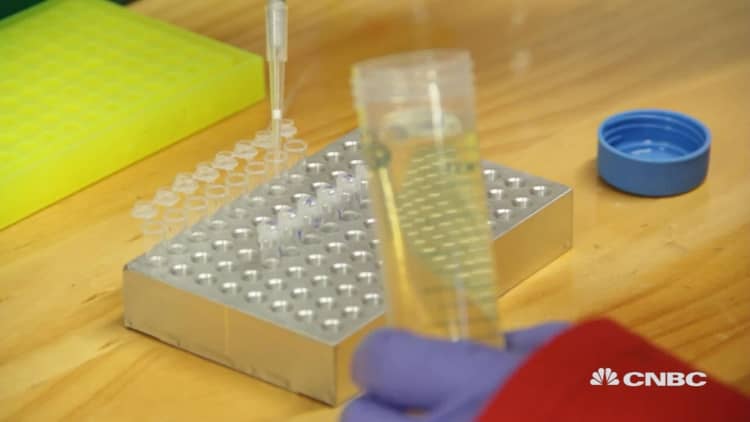
As the world searches for ways to mitigate the environmental impact of large-scale industrial processes, one business is looking to turn waste into fuel using microbes.
LanzaTech, which has offices in Illinois, has developed a process which it says converts "carbon rich wastes and residues" produced by industries like steel manufacturing into fuel and chemical products.
At a facility in China, the business is looking to put its technology into practice on a large scale. The beginning of May saw LanzaTech, together with steel and iron producer the Shougang Group, commence operations at a site that converts industrial emissions into ethanol.
Anaerobic bacteria, which comes from rabbit droppings, is used to ferment waste emissions to produce ethanol, which can be used as a low carbon fuel.
"Our process can recycle carbon not just to make ethanol for fuel but also chemicals," Jennifer Holmgren, LanzaTech's CEO, told CNBC's "Sustainable Energy."
"And we're really excited about doing that because today the world also uses a lot of fossil feed stocks to make plastic bottles, nylon, yoga pants, all the things that we use in our everyday lives."
Looking at the bigger picture, the market for the fuel and fuel technology sector could see a shift over the coming years.
"If we look at fuels we really look at hydrogen, oxygenates such as ethanol and high alcohols, and hydrocarbons such as gasoline, and these will pretty much be the fuels in the near future," the University of Cambridge's Erwin Reisner told CNBC. "The key question is really how we can develop sustainable processes to make these fuels to replace fossil fuel based processes."
As technology develops, what we today regard as the status quo could change dramatically. "At the moment we have a fossil-based infrastructure which means we use gasoline, for example, for vehicles," Reisner explained.
"What we try to do in the long term is to convert the greenhouse gas, carbon dioxide, to produce liquid carbon based fuels to feed in direct in the current infrastructure," he added. "So … replace a fossil based non-renewable infrastructure with a sustainable infrastructure."




